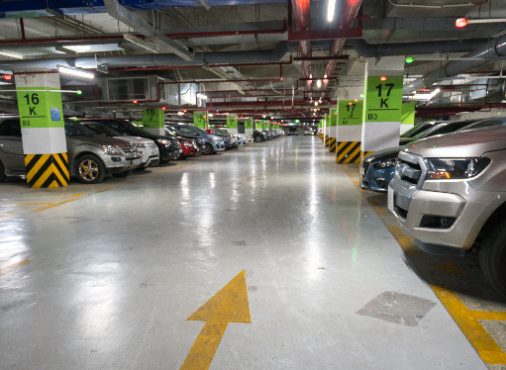Purchasing a luxury apartment, especially in a dynamic real estate market like India’s, requires more than just financial readiness. It demands a clear understanding of the legal and procedural framework that governs property ownership, particularly for Non-Resident Indians (NRIs).
With high-value transactions and long-term investments on the line, ensuring that your documentation is accurate, complete, and compliant is crucial. This guide outlines all the key documents you’ll need to prepare and verify, with a focus on NRI buyers interested in luxury real estate in India.
Essential Buyer-Side Documents
For NRIs investing in luxury property in India, having the right set of personal documents is not just a procedural requirement; it is a compliance necessity. These documents establish your legal identity, your financial eligibility, and your entitlement to transact in Indian real estate.
Identity Proof
Every NRI buyer must provide valid proof of identity to establish nationality, visa status, and compliance with regulatory bodies like FEMA (Foreign Exchange Management Act). The key documents include:
- Overseas Citizen of India (OCI) Card: This serves as primary proof of your eligibility to invest in immovable property in India. If you’re an NRI without an OCI, your Indian origin must be verified through alternate documents, such as your parents’ Indian passports.
- Valid Passport with Visa: A current passport with a valid visa or permanent residency permit serves as your government-issued identity document.
- PAN Card (Permanent Account Number): A PAN is mandatory for any property transaction in India, especially for filing taxes related to property ownership, rental income, or capital gains. It is also required for property registration and applying for home loans.
NRI Bank Account Details
To complete financial transactions in India, NRIs are required to hold one or more of the following types of bank accounts with an Indian bank authorised by the Reserve Bank of India (RBI):
- NRE (Non-Resident External) Account: Suited for depositing earnings from abroad, this account allows non-residents to manage foreign income in India.
- NRO (Non-Resident Ordinary) Account: Designed for handling income generated within India, such as rental earnings, pension payouts, or dividends. Funds in this account are taxable under Indian law.
Property Documents to Demand from the Developer
When buying a luxury apartment from a developer, the documentation provided should assure you of the legality of the project and its compliance with municipal and environmental regulations. Always demand these critical documents:
Title Deed and Land Registration Papers
These are among the most important documents in a property transaction. They establish the legal ownership of the land on which the development is built.
- Title Deed: Confirms the developer’s legal right to sell the property. It should be clear of litigation, mortgages, or disputes.
- Land Registration Documents: These show that the land has been officially registered with the local land records office and is not under acquisition by the government or a third party.
Approved Layout and Sanctioned Building Plans
These documents confirm that the development is authorised and in compliance with local building codes and zoning regulations.
- Layout Plan: Issued by the local planning authority, this plan specifies land use, open spaces, roads, and amenities as approved.
- Sanctioned Building Plan: A blueprint that includes the architectural design, height, floor configuration, and usage as approved by municipal authorities.
Project-Level Legal Documents
Every luxury real estate project must meet a set of regulatory requirements to ensure safety, legal clarity, and environmental compliance. As a buyer, you are entitled to review these documents before signing any agreement.
RERA Registration Number
RERA (Real Estate Regulation and Development Act, 2016) requires developers to register large-scale housing projects with the state’s RERA authority to ensure transparency and accountability in the real estate sector.
- The RERA registration number ensures that the project is legally compliant and that the developer is accountable for delivering the property as promised.
- RERA also mandates timely possession, clarity on carpet area, and protects buyers from misleading advertisements.
Read Also: Bengali Business Network: Premium Properties Near Mumbai’s Business Districts
NOCs from Departments (Fire, Environment, Water)
These are statutory clearances required before the commencement and occupancy of any large-scale residential project:
- Fire Department NOC: Ensures that the building complies with fire safety norms, including emergency exits, fire suppression systems, and access routes for emergency services.
- Environmental Clearance (EC): Mandatory for larger projects to assess impact on local ecology, including waste disposal, energy efficiency, and air/water pollution control.
- Water and Drainage NOC: Ensures that the project has a reliable and approved connection to the municipal water supply and sewage systems.
Home Loan Documentation for NRIs
For NRIs looking to finance their luxury apartment purchase through a home loan from an Indian bank, documentation requirements are stringent.
Financial institutions assess your repayment capacity, source of funds, and employment status before sanctioning the loan. Below are the critical documents and what each represents:
Income Proofs
Income verification is crucial to establishing your loan eligibility. Banks typically require:
- Bank Statements (Last 6 to 12 Months): These help lenders evaluate your income flow, saving patterns, and financial stability. Ensure the statements are from your NRE or NRO accounts, as relevant.
- Income Tax Returns: If applicable in your country of residence, your last two years of tax returns serve as validation of declared income and financial standing.
Salary Certificate (for Salaried NRIs)
- Issued by Employer: This certificate must be on official letterhead, stating your designation, tenure, monthly or annual salary, and currency.
- Additional Proofs: You may also be asked to submit a copy of your employment contract and recent pay slips (typically the last three months).
Business License or Company Registration (for Self-Employed NRIs)
If you’re an entrepreneur or self-employed, banks require:
- Proof of Business Incorporation: Business license, trade license, or incorporation certificate showing the legal status of your business.
- Financial Statements: Profit & Loss accounts, balance sheets, and tax assessments may be required to determine the profitability of your business.
- Auditor Certification (in some cases): Especially when applying from countries with differing accounting standards.
Read Also: ROI Comparison: Premium Property Investment in Mumbai vs Kolkata
Due Diligence Checklist for NRIs
NRIs must exercise a strict level of caution during property transactions. Apart from relying on a developer’s marketing material, legal due diligence should be conducted, ideally with the assistance of a real estate attorney familiar with NRI property laws.
Encumbrance Certificate (EC)
- Purpose: The EC confirms that the property is free from legal or financial liabilities such as unpaid mortgages, liens, or third-party claims.
- How to Obtain: Issued by the Sub-Registrar’s Office, this certificate includes a record of all registered transactions over a specific period (commonly 13–30 years).
- What to Verify: Ensure there are no entries of sale agreements, charges, or disputes that could affect ownership.
Mother Deed or Parent Title Document
- Importance: This foundational document traces the property’s ownership history. It is vital to establish a clear title chain, especially in secondary sales.
- Details Covered: Names of previous owners, transaction history, inheritance documents (if applicable), and sale transfers.
- What to Watch for: Missing links or unclear transfers in the chain of title could result in future legal complications.
Conclusion
In the luxury real estate space, documentation is far more than a formality; it’s the bedrock of a secure and seamless buying experience. For NRIs, the process can involve multiple jurisdictions, legal frameworks, and financial systems, making meticulous documentation not just advisable but essential.
If you’re planning to purchase premium property in India, informed documentation practices can make your investment legally sound and future-ready. Explore Rustomjee’s curated portfolio of luxury residences, backed by transparent processes, legal clarity, and a team that understands the needs of global buyers. Make your next investment with confidence.
FAQs
- How can NRIs manage and store property-related documents securely?
NRIs can manage their documents securely by using cloud storage solutions that offer encrypted access and organising files into well-labelled folders. Documents should be scanned in high resolution, and notarisation or consulate attestation should be completed as required to ensure their legal validity in India.
- Is it necessary to verify imported fittings and materials in the documentation?
Absolutely, high-end apartments may include imported fixtures and finishes; buyers should request invoices or certifications to ensure authenticity and warranty coverage.
- How does the property’s art, antique elements, or custom interiors affect documentation?
If the property includes curated interiors, artwork, or antique fixtures, it’s wise to have them itemised in the sale agreement or annexure to ensure clarity on ownership and transfer terms.







